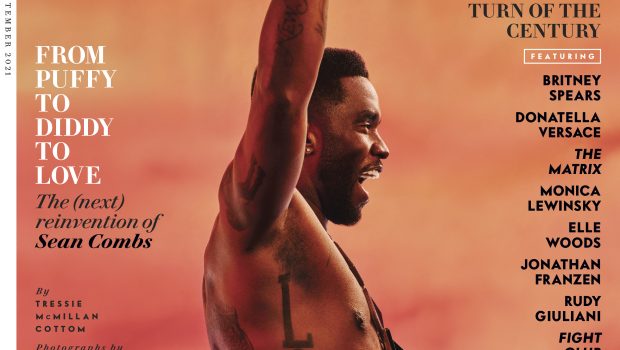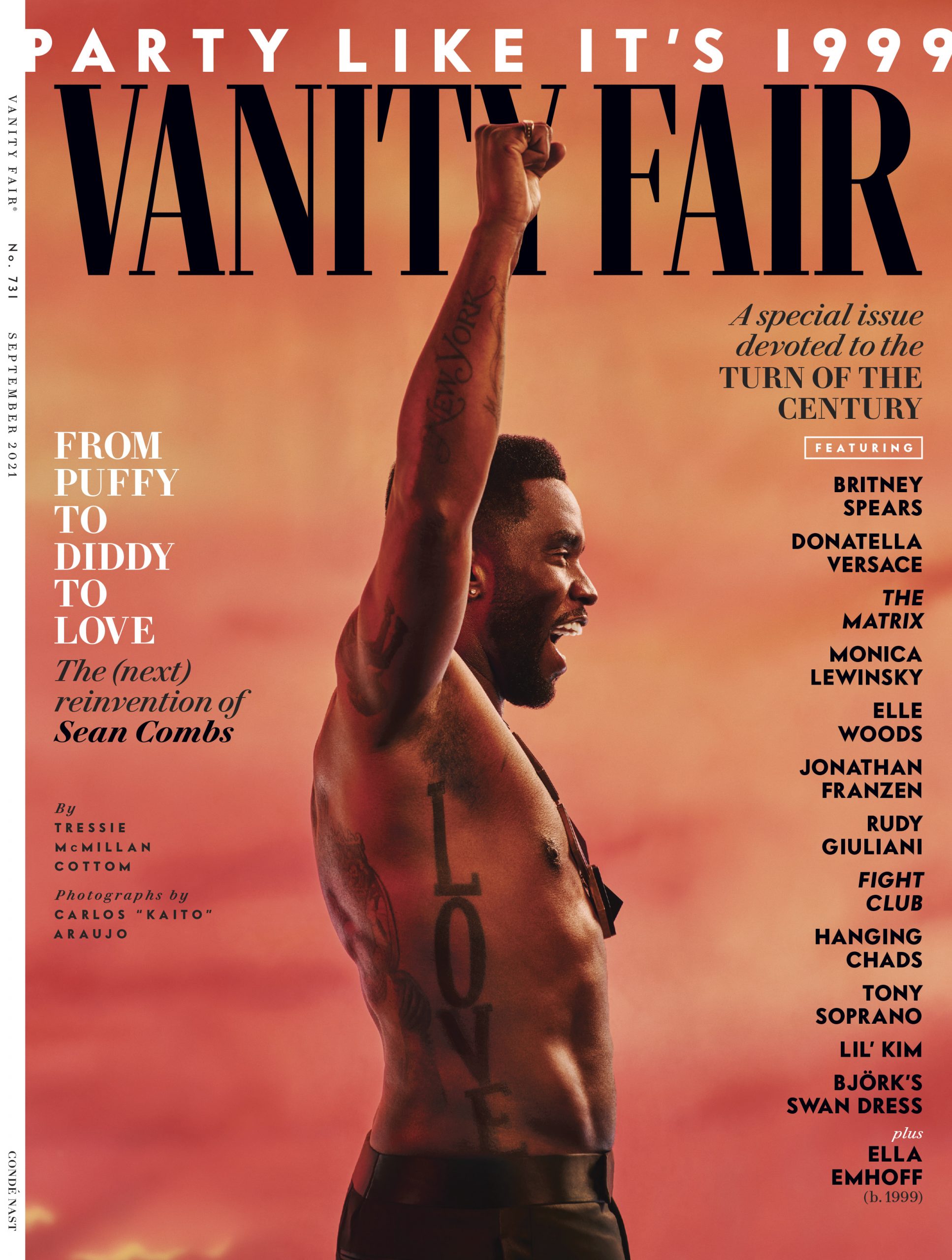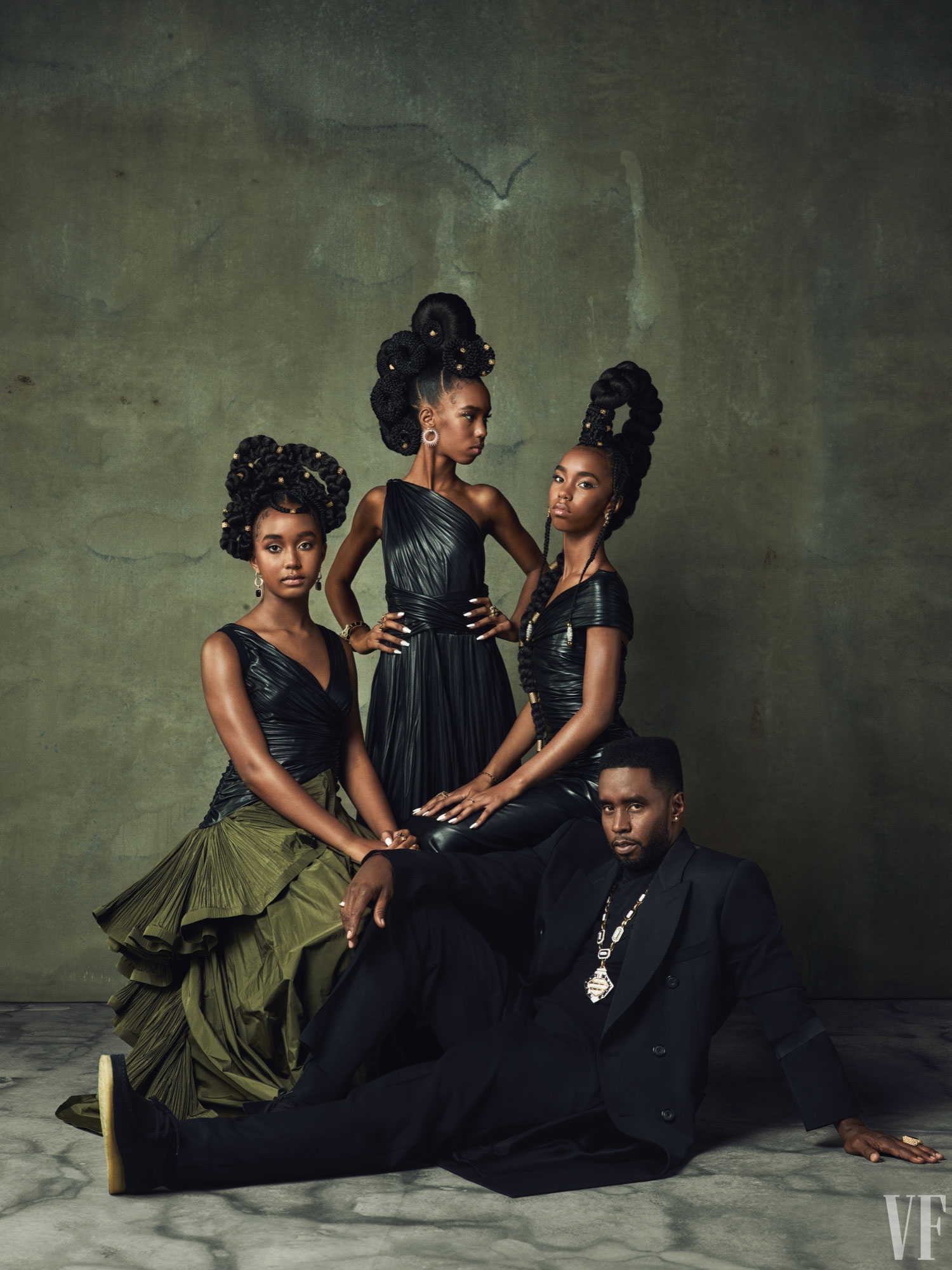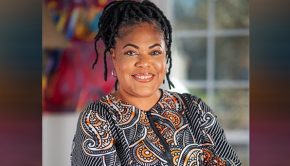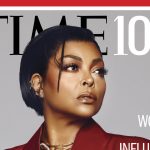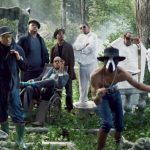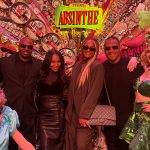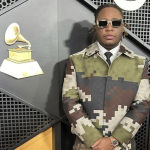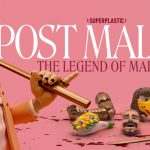Sean “Love” Combs Covers Vanity Fair’s September Issue; Discusses Experiencing Loss, Returning to the Music, J.Lo, and Defining His Next Era
In a new cover story for Vanity Fair’s September issue—a special issue devoted to the turn of the century—contributor Tressie McMillan Cottom sits down with Sean “Love” Combs in his Los Angeles home, where the rapper-producer-entrepreneur discusses being called to a higher purpose, and his plan to return to music with the launch of an R&B record label. Combs also opens up about the love of his life and mother of three of his kids, Kim Porter, and that #tbt Instagram photo he posted featuring his ex, Jennifer Lopez.
Born Sean Combs in Harlem in 1969, the 51-year-old businessman has had several names through the years. He and his staff talk about these as eras. “You have the Puff Daddy era, that’s like this young, brash, bold hip-hop, unapologetic swagger on a million and just fearlessness and really doing it for the art and rooted, the only thing I know is hip-hop,” says Combs. “I don’t know about changing the world or anything like that as possible.”
The Diddy era was in homage to his brother Biggie, who clowned him about his rhythmic “diddy bop” swagger. “Then after Biggie, I just, and after all of that, I wanted to get into other businesses,” he says.
For a younger generation, Diddy is known for at least a half dozen things other than music. Businessman. Celebrity host. Reality television judge. He translated his cultural dominance into economic power, with all the complexities that entails. Now, during the cultural upheaval of the 2020s, the man who turned hip-hop culture into a global lifestyle brand in the go-go 1990s has had a lot to think about.
“I am the happiest I’ve ever been in life, I laugh the most, I smile the most, I breathe the most,” he says. In a word, Combs has love on his mind.
“Love” is Combs’s latest nom de plume. What does he have planned for the Love era? Oh, just a little justice and a lot of Black capitalism. For Love, those are one and the same.
“Love is a mission,” he says with all seriousness. “I feel like that’s one of the biggest missions that will actually shift things. But besides that, we—the world—is different. We have the internet, we have the power, we have a culture, I have us on a five-year plan.” That plan is for Black people, although Combs is careful to say that he loves everyone. He says many times throughout the conversation that Love is about moving from “me to we,” and he has a very clear idea of who is included in that we.
“My people taking time to feel like it’s all right to love,” he continues. “Take time to huddle up your tribe, take time to communicate and know your power. Take time to heal. You know what I’m saying, [taking care of] yourself without feeling like, oh, you’re going to be labeled a racist now because you talk about taking care of yourself.”
Diddy had “gotten so far from God,” Combs says. He had hunger and vision but it was “so small.” Now, Combs believes he is stepping into his purpose. “I feel like God sent me, God, put on my heart, ‘What’s your purpose?’ I was looking at all these things, it’s preachers and just different people talking about purpose because I was like, man, purpose is something deep. Have I really found my purpose? I know I’m making money and I’m successful and I’m changing the game so called, but is that my purpose? And then I really prayed on it and God told me, ‘Your purpose is to play a part in saving the Black race.’”
The 2010s—police brutality, civil disobedience, and political retrenchment—forced Combs to take a hard look at his legacy.
“If you living on this earth and you trying to keep on dealing with this shit, that ain’t the way we going to live,” he says. “And people out there that are tired of it. And it’s not just a Black and white thing. You know what I’m saying? It’s just tired of the way that it doesn’t have to be. Like when they said it was over—when they said in the #MeToo, when it was over, it was over,” he says emphatically. “The #MeToo movement, the truth, is that it inspired me. It showed me that you can get maximum change,” he adds.
Combs talks freely about how private losses moved him to reconsider his life’s work. He describes Kim Porter, the mother of three of his kids, as the love of his life, and makes it clear that if any woman was going to tie the renowned playboy down, it would have been Porter. “And so, you know, I had to start to deal with it when I lost Kim. ’Cause I was like, man, you had it. I’m not saying I would do any of it differently. God willing—I would have had more time,” he says, then adds, “I look at my life as I got a second chance. I’m on my second mountain.”
But what about that social media post, featuring J.Lo., that set tongues wagging over the summer? He says it was just a throwback post from a great time in his life, adding that there is no reason to expect a redux of the Diddy-Lopez romance. He and J.Lo are just friends. “It wasn’t no trolling involved, that’s just my friend. And I don’t have nothing to say about her relationship or her life.”
At one point during the interview, Combs looks pointedly at the recorder and says “I’m coming back into music, you know?” The room pauses for a dramatic beat. Combs obviously wants this on the record, and it is also clearly news to his team. Ever in control of his narrative, he issues the final word by telling me that he is starting a new record label. It will be an all R&B label because that is the music that makes Love Combs happy.
As his publicist looks alarmed at the unplanned disclosure, Combs says R&B is where he started. It is time that he comes home, not just for himself but for the culture. “Yeah, all R&B label, because I feel like R&B was abandoned and it’s a part of our African American culture. And I’m not signing any artists. Because if you know better, you do better. I’m doing 50-50 partnerships with pure transparency. That’s the thing. [The new label is so that] we can own the genre; we don’t own hip-hop right now. We have a chance to—and I’m going to make sure that—we own R&B.”
*Read the full story “I Got a Second Chance”: From Puff Daddy to Diddy to Love, by Tressie McMillan Cottom in Vanity Fair’s September issue and on VanityFair.com
Tweet
